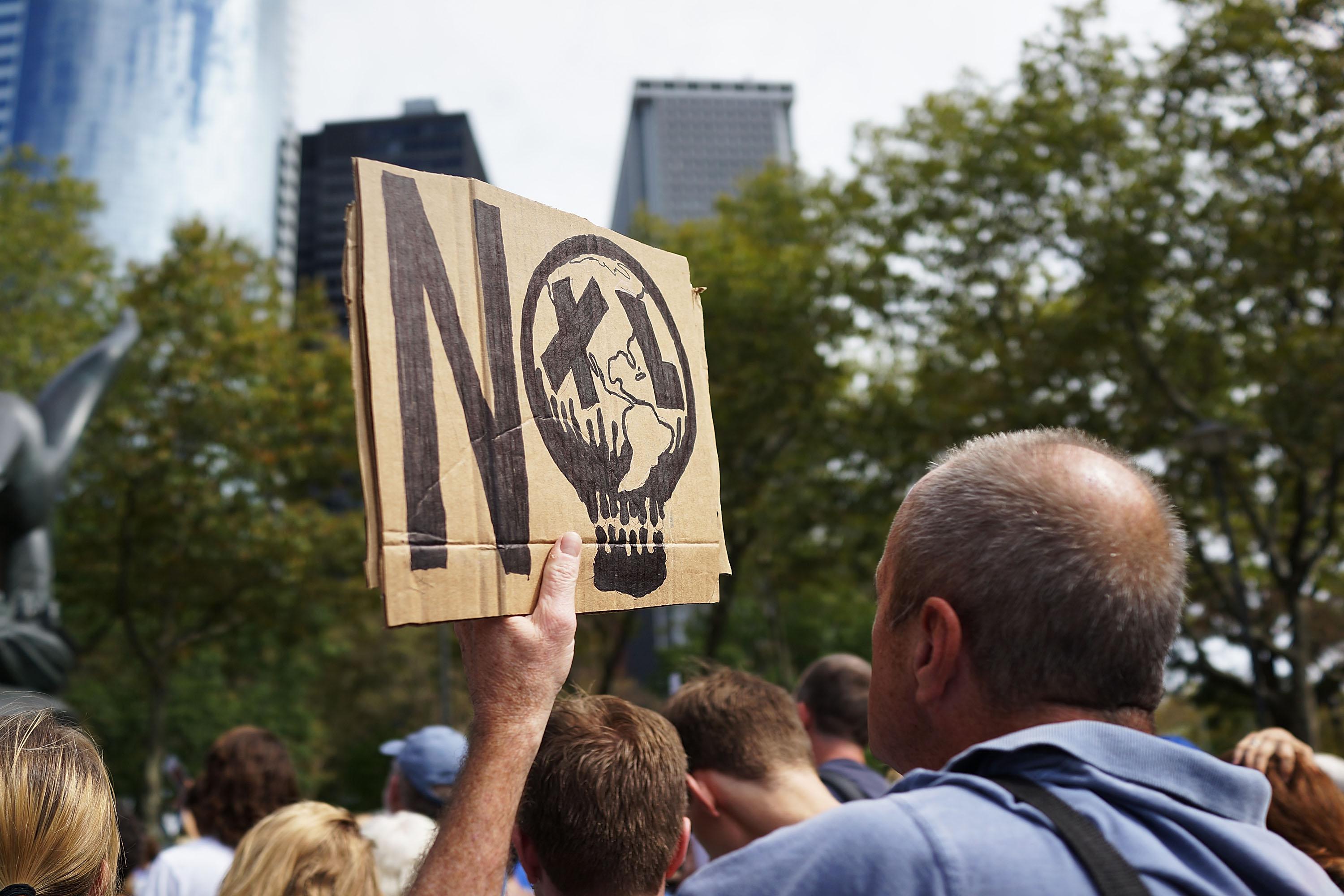A California billionaire is hoping to unleash somewhere around $100 million in this year’s mid-term elections with the singular focus of increasing the chances that United States will take action to address climate change, the New York Times reports today.
The sheer nine-figure size of that fundraising target—cash that in typical super-PAC fashion will largely be used for attack ads tearing down candidates on the other side of the issue—is news in itself, but it’s also the latest example of Democrats learning to love the super PACs that roared to life after the Supreme Court’s 2010 Citizens United decision. “We have a democratic system, there are parts we would want to reform or change, and Citizens United is prominent in that,” the billionaire in question, Tom Steyer, told the paper. “But we’ve accepted the world as it is.”
Have they ever. According to the Times’ Nicholas Confessore, Steyer is currently at work raising roughly $50 million to pair with another $50 million of his own money to bankroll his NextGen Climate Action group (which includes the super PAC and the other secondary political apparatus), a total that would put the climate-focused organization on the same playing field as the conservative political network overseen by the Koch brothers:
Mr. Steyer, 56, accumulated more than $1.5 billion during his days at the hedge fund Farallon Capital Management, before he retired in 2012. Today, he is among the most visible of a new breed of wealthy donors on the left who call themselves “donor-doers,” taking a page from the Kochs, Mr. Bloomberg and others to build and run their own political organizations — outside the two parties and sometimes in tension with them. …
The new fund-raising push seeks to tap into the booming fortunes of Silicon Valley, where many donors rank climate change as their top political issue. It also signals a shift within the environmental movement, as donors — frustrated that neither Democratic nor Republican officials are willing to prioritize climate change measures — shift their money from philanthropy and education into campaign vehicles designed to win elections.
Among targets that NextGen is eyeing this November: Florida Gov. Rick Scott, a first-term Republican who has made no secret that he doesn’t believe climate change is man-made; and the Senate race in Iowa, where climate hawks hope that a win by Democratic Rep. Bruce Braley would not only given them another ally in the upper chamber but also potentially help shape the 2016 presidential nominating contests.
The group is also letting its donors decide which of five other congressional candidates it might bombard with negative ads between now and this fall. Unsurprisingly, four out of the five are Republicans, including Sen. Marco Rubio. The fifth is Louisiana Sen. Mary Landrieu, whose close ties with the off-shore drilling industry and support of the Keystone pipeline has made her the Democrat that environmentalists love to hate. (Given climate hawks need Democrats to hold on to the Senate, it’s unlikely that the donors would select Landrieu. Still, the simple fact that she’s even on the list may serve as a warning shot to the Louisiana senator and her like-minded pro-oil colleagues.)
Elsewhere in Slate: How Democrats Learned to Stop Worrying and Love Super PACs
***Follow @JoshVoorhees and the rest of the @slatest team on Twitter.***
